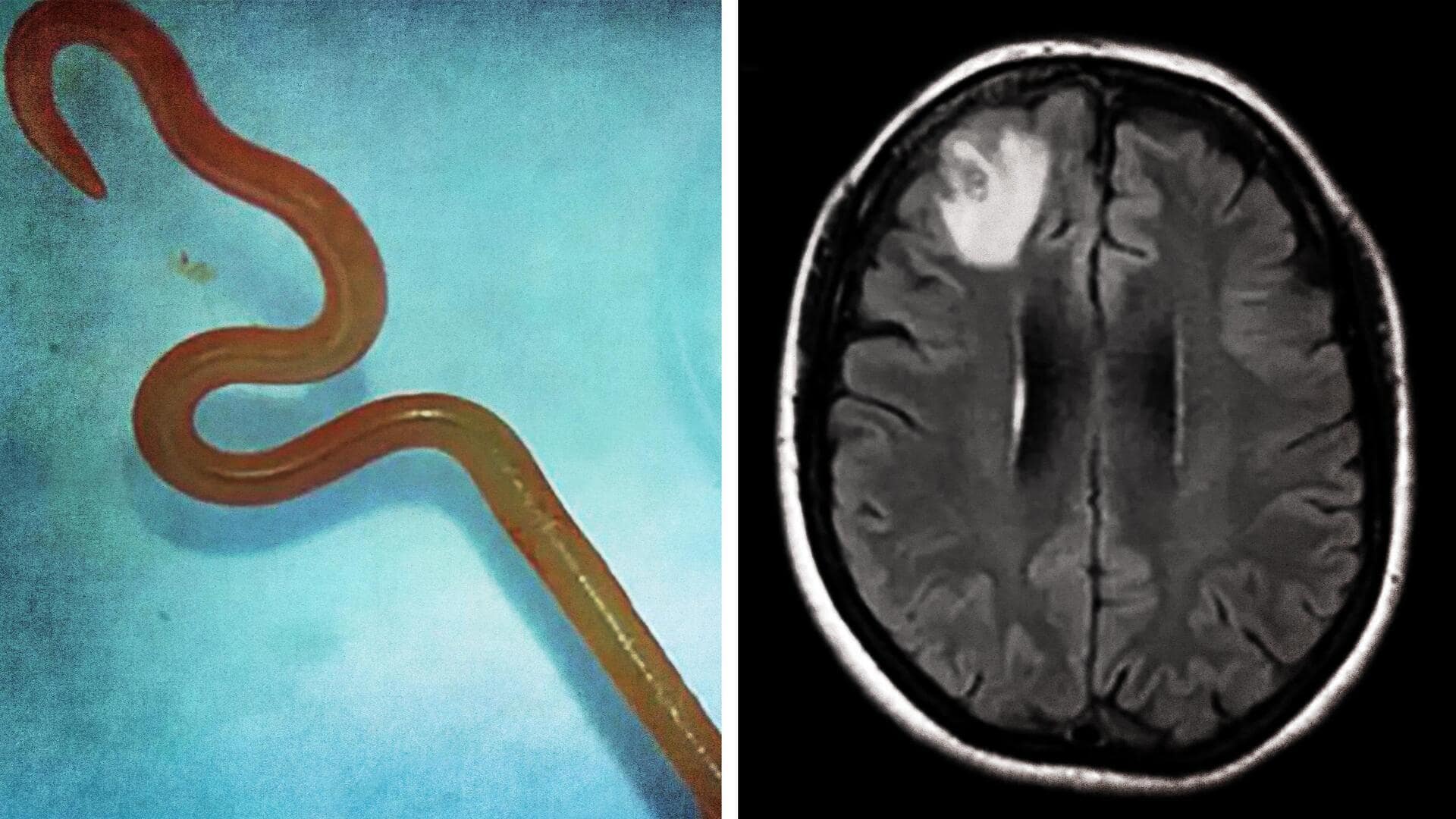
World's first: Parasitic worm found alive in woman's brain
What's the story
In a development that has taken the scientific community by surprise, doctors and scientists at the Australian National University and Canberra Hospital in Australia discovered a live parasitic worm inside the brain of a 64-year-old woman. It's the first recorded case of such an infection in humans. The roundworm measures 8cm (3.15 inches) long. The woman was experiencing symptoms of memory loss and depression.
Symptoms
Woman experienced these symptoms
As per BBC, the woman from south-eastern New South Wales was initially hospitalized in January 2021 after three weeks of experiencing abdominal pain and diarrhea. She later experienced a dry cough, fever, and night sweats. In 2022, she was referred to a Canberra hospital due to worsening memory problems and depression. An MRI scan then revealed brain abnormalities that called for surgery.
Host
Roundworm typically found in carpet pythons
"The neurosurgeon certainly didn't go in there thinking they would find a wriggling worm," Dr. Sanjaya Senanayake, an infectious diseases physician at Canberra Hospital, said in a statement. The roundworm, known as Ophidascaris robertsi, typically lives inside carpet pythons, its usual host. Meanwhile, the woman's other organs, including her lungs and liver, are also believed to have been affected by larvae from the worm.
First-ever
First-ever case involving any mammal's brain
"This is the first-ever human case of Ophidascaris to be described in the world. To our knowledge, this is also the first case to involve the brain of any mammalian species, human or otherwise," claimed Dr. Senanayake. Usually, the worm's larvae reside in small mammals and marsupials. These creatures get consumed by pythons, completing the worm's life cycle within the snake, as he explained.
Explanation
How roundworm got inside her brain
The researchers, whose findings were published in the Emerging Infectious Diseases journal, suggested that the woman probably got the infection from Warrigal greens, a native grass she collected near her home and cooked. These greens are a habitat for pythons, which likely pass the parasite's eggs in their feces. Ophidascaris robertsi roundworms are commonly found in carpet pythons, residing within their esophagus and stomach.
Recovery
Woman is recovering
Moreover, the patient is getting better and is being watched closely, according to Dr. Senanayake. Researchers are investigating whether a pre-existing medical condition, which weakened her immune system, could have made it easier for the larvae to thrive. This incident highlights the danger of diseases transferring from animals to humans, especially as interactions between humans and animals rise and their habitats overlap more often.